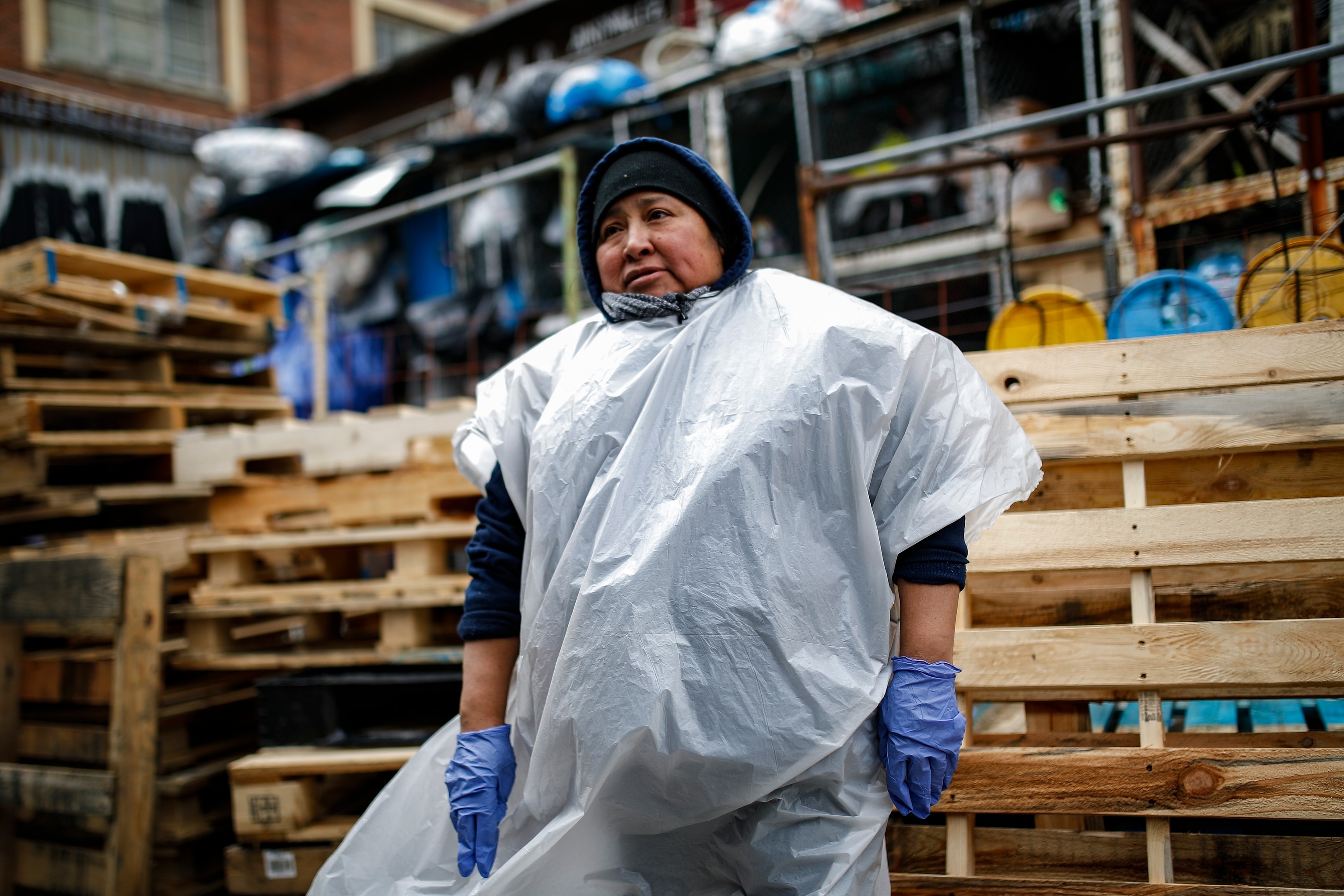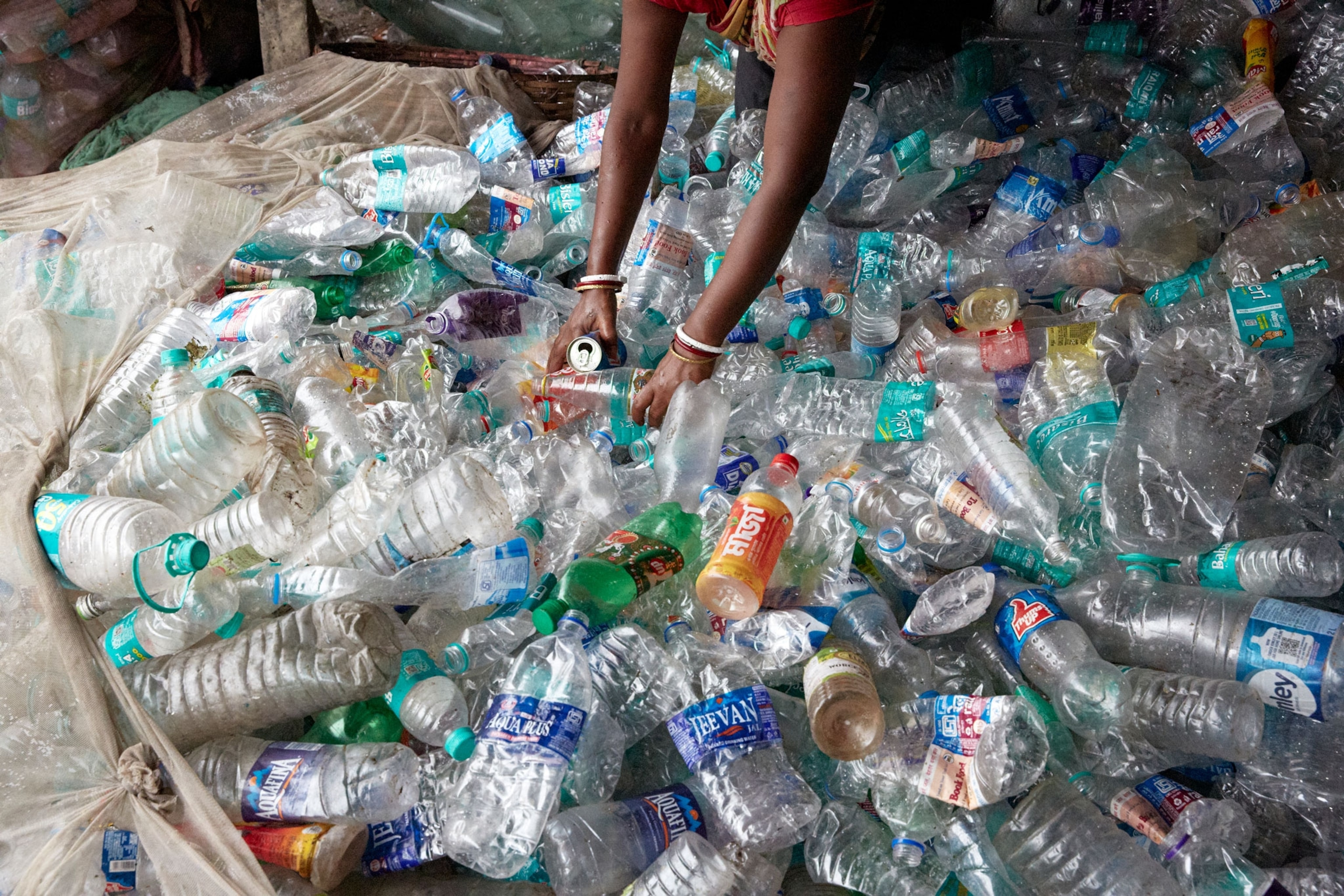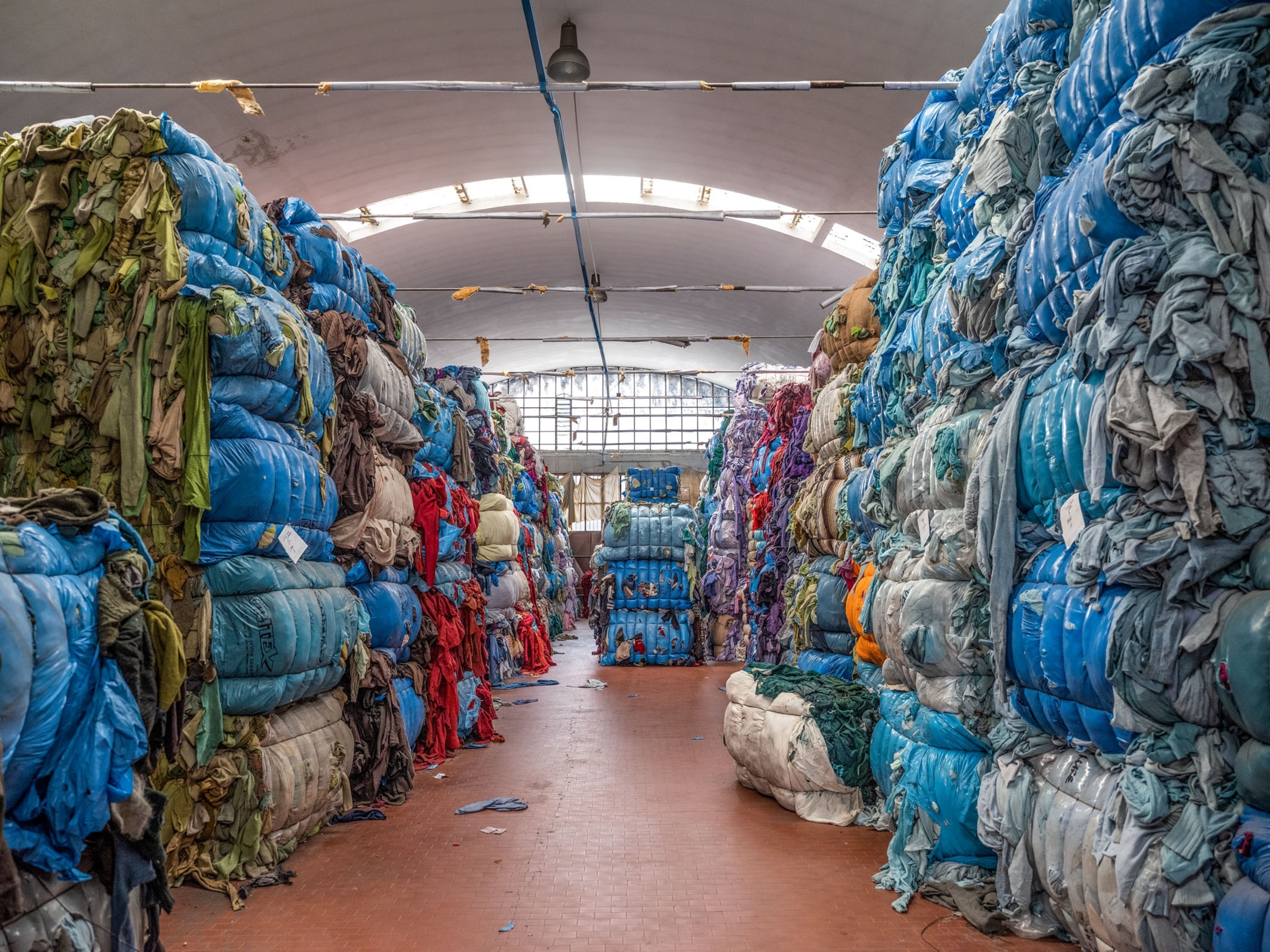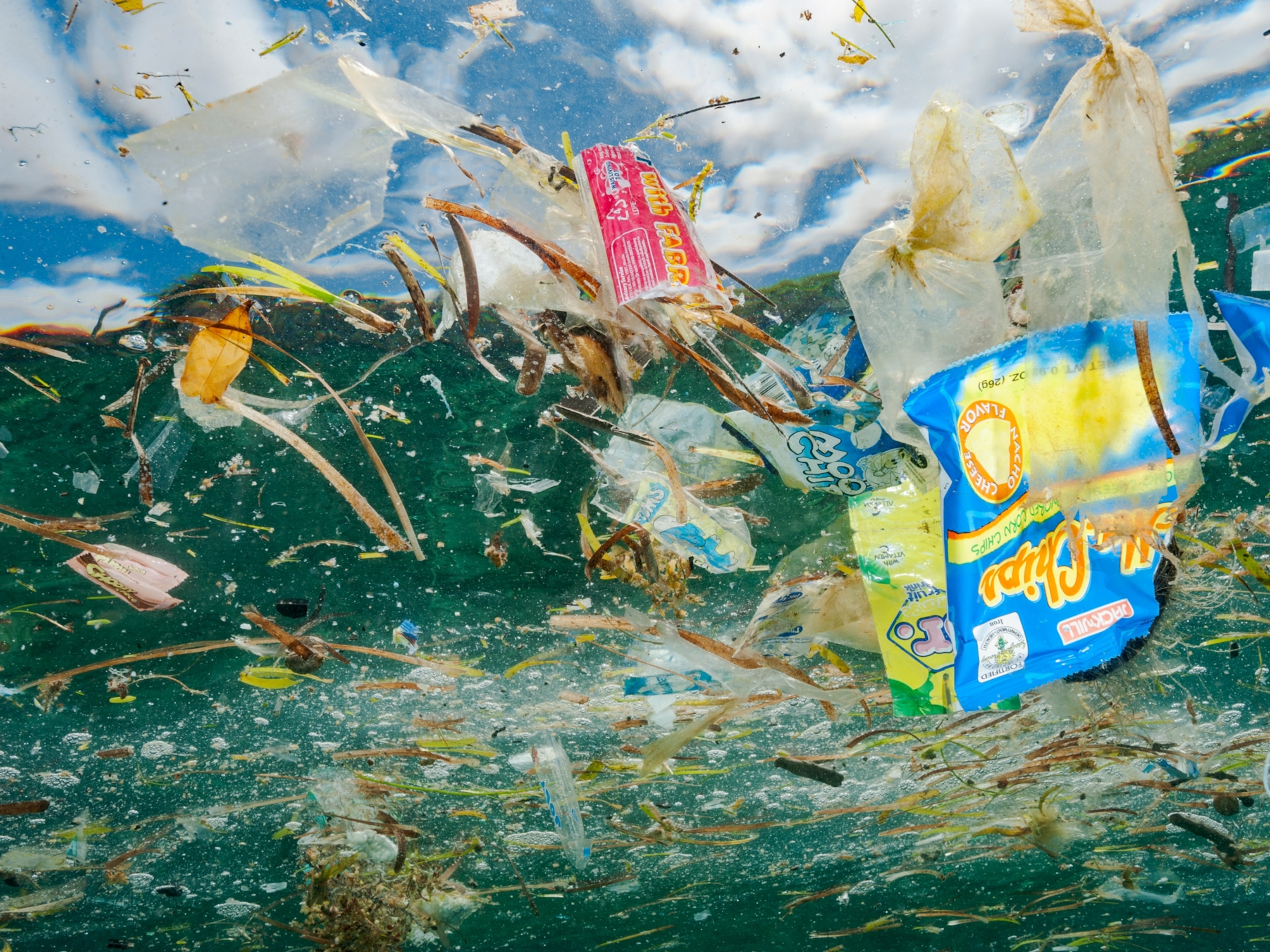
Who owns our trash—and why does it matter?
Millions around the world make a living from picking through waste and reselling it—a vital role that keeps trash manageable but is being squeezed by government policies.
Who owns our trash? It’s a heated question being asked by waste pickers around the world who are uniting to fight for their survival. What we throw away, they insist, should be available to all.
Globally, up to 56 million people collect and resell the metal, glass, cardboard, and plastic that the rest of us toss.
The United States Supreme Court in 1988 ruled that household garbage is public property once it’s on the curb. That enables police to search trash for criminal evidence, but that protection hasn’t always been extended to people who collect recyclables.
And in places like New York City, which is testing city-owned locked containers to hide trash from rats, waste pickers are being kept from a sustainable income.
“These containers are made explicitly inaccessible,” says Ryan Castalia, executive director of Sure We Can, a nonprofit recycling and community center in Brooklyn. “There’s value in the waste, and we feel that value should belong to the people, not the city or the corporations.”
A recycler’s journey
Josefa Marin immigrated to New York from Mexico in 1987, supporting her daughter back home with the $140 a week she earned cleaning floors at a sweater factory. She began collecting recyclables to supplement that meager income, trading in cans for five cents each at her local supermarket.
Soon, she was wheeling a cart around Brooklyn on weekends, selling empties to intermediaries who redeem them for cash at recycling centers. When she lost her job in the late 2000s, she became a full-time recycler, providing for her four children with the $80 she earned each day.

Marin’s story is not unique. New York City does not track how many people make a living from waste picking, but one rough estimate puts the total around 8,000. Sure We Can serves about 1,200 recyclers, who redeem roughly 12 million cans at the organization’s headquarters annually, generating an estimated $800,000 for this community.
A critical job
Waste pickers are crucial to keeping garbage manageable. In New York City, the sanitation department collects only about 28 percent of the cans that could be recycled. That rate drops to 5 percent for plastic, including water bottles. Collectors keep millions of additional recyclables out of landfills every year.
In countries without formal waste management systems, their role is even more vital. In some Latin American countries, up to 96 percent of reusable garbage ends up in landfills because recycling programs are nonexistent. Waste pickers do the work instead, earning only what local industries pay for the materials. “It’s a service being done for free” to local governments, says Sonia Dias, global waste specialist with WIEGO, an international advocacy organization for women workers.
Yet most governments do not recognize waste picking as legitimate, and without legal protection, recyclers cannot secure public access to garbage.
Take New York City’s recent effort. The pandemic hit the sanitation department hard. Lockdowns shifted garbage from office buildings to homes and trash piled up. Add more outdoor dining and the result was a blight of piled-up trash bags and the vermin they attract. Shifting to large, padlocked bins made trash accessible only to sanitation workers.
City officials have so far not recognized the public right to waste. Spokesperson Vincent Gragnani says the Department of Sanitation does not oppose individuals redeeming cans and bottles “to make ends meet.” However, the department would not comment on whether trash is public or private.
A brief history of waste
The lack of protection for trash pickers is rooted in the origins of waste collecting, notes Lily Baum Pollans, who teaches urban policy and planning at Hunter College.
Through the late 19th century, U.S. city dwellers threw their animal carcasses, ashes, rags and their own waste into the streets and local rivers, eventually causing a public health crisis that spurred municipalities to create workforces dedicated to collecting and removing garbage.
In San Francisco, the Sunset Scavengers, originally an informal collection of workers, formed a corporation in 1921. New York City formalized waste management in 1896.
City-funded waste management has always been about cleanliness, not job creation, Baum Pollans points out. Municipalities that already pay sanitation workers aren’t incentivized to officially recognize or financially support waste pickers when a dedicated workforce already exists.
A shifting view
Recognized or not, waste pickers have long been treated with disdain. Marin recalls an occasion when someone living next to a building where she was collecting cans threw water at her, shouted racial slurs and told her to leave. “Because I recycle doesn’t mean I am less of a person than anyone else,” she says.

Countries in the global south are beginning to recognize that. Brazil classified waste picking as an official occupation in 2001. In 2009, Colombia’s constitutional court granted the right to collect and redeem valuable garbage. In Argentina, waste pickers earlier this year drafted a bill that would tax the companies that make disposable products; most of the funds support recyclers and other informal garbage collectors.
The U.S. is slowly catching on too, though with a focus on forcing corporations to cover the cost of disposing of the garbage they produce. In July 2021, Maine required producers to pay a packaging fee. Oregon and Colorado also have such “extended producer responsibility” laws. And in October 2022, the International Alliance of Waste Pickers, an advocacy organization for informal recyclers, enacted its first constitution. Marin was among the drafters, and she is also on the board of directors at Sure We Can.
Some governments are starting to realize that protecting the environment and humanity go hand in hand. The United Nation’s 2030 Agenda for Sustainable Development, for example, calls for an end to poverty and all the risks it brings. “The whole idea is to leave no one behind,” says Dias.
Erasing poverty could also eliminate the necessity of waste picking altogether. “In my ideal system,” says Baum Pollans, “we have a really robust safety net so people don’t have to depend on five-cent deposits.”







